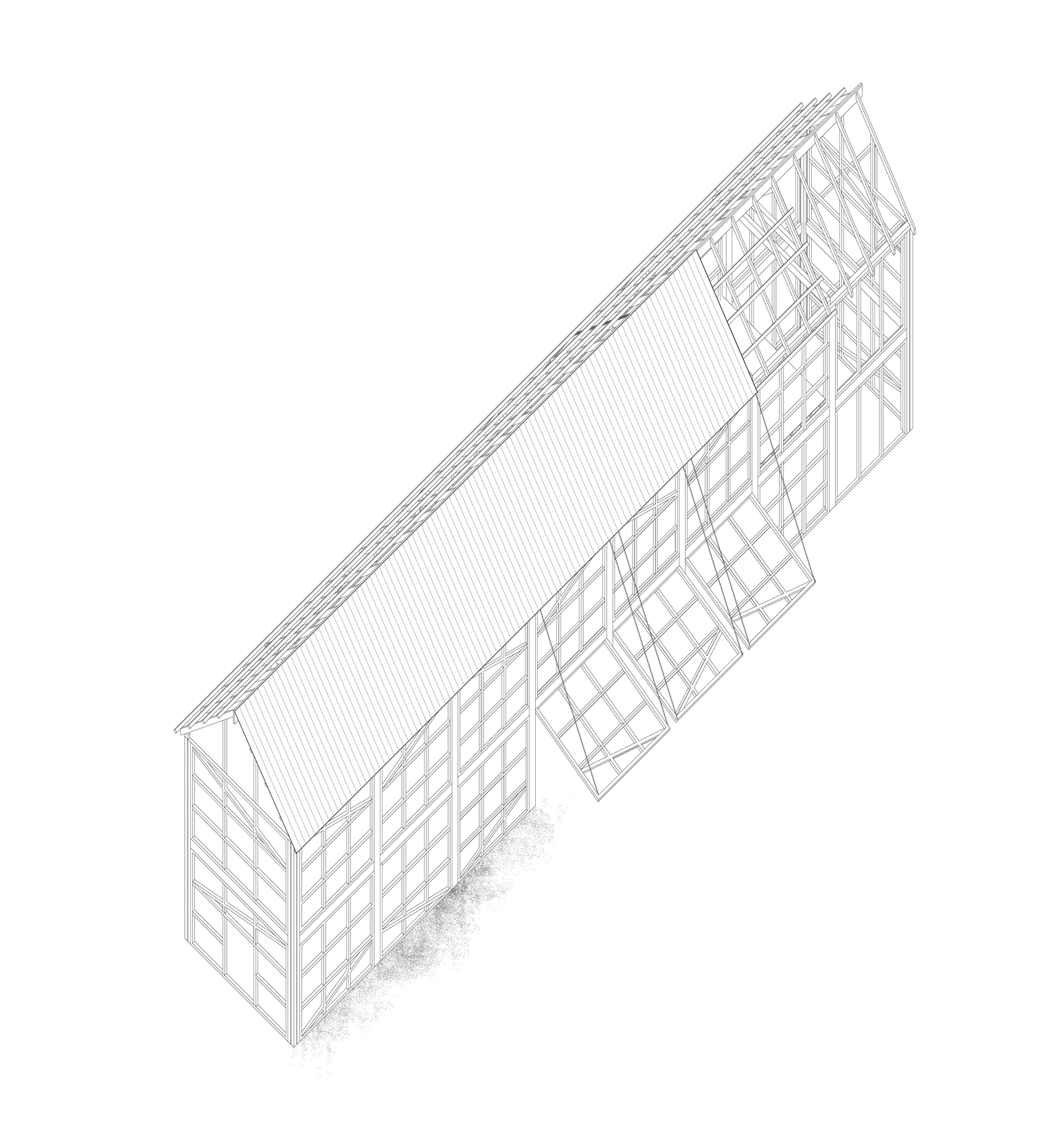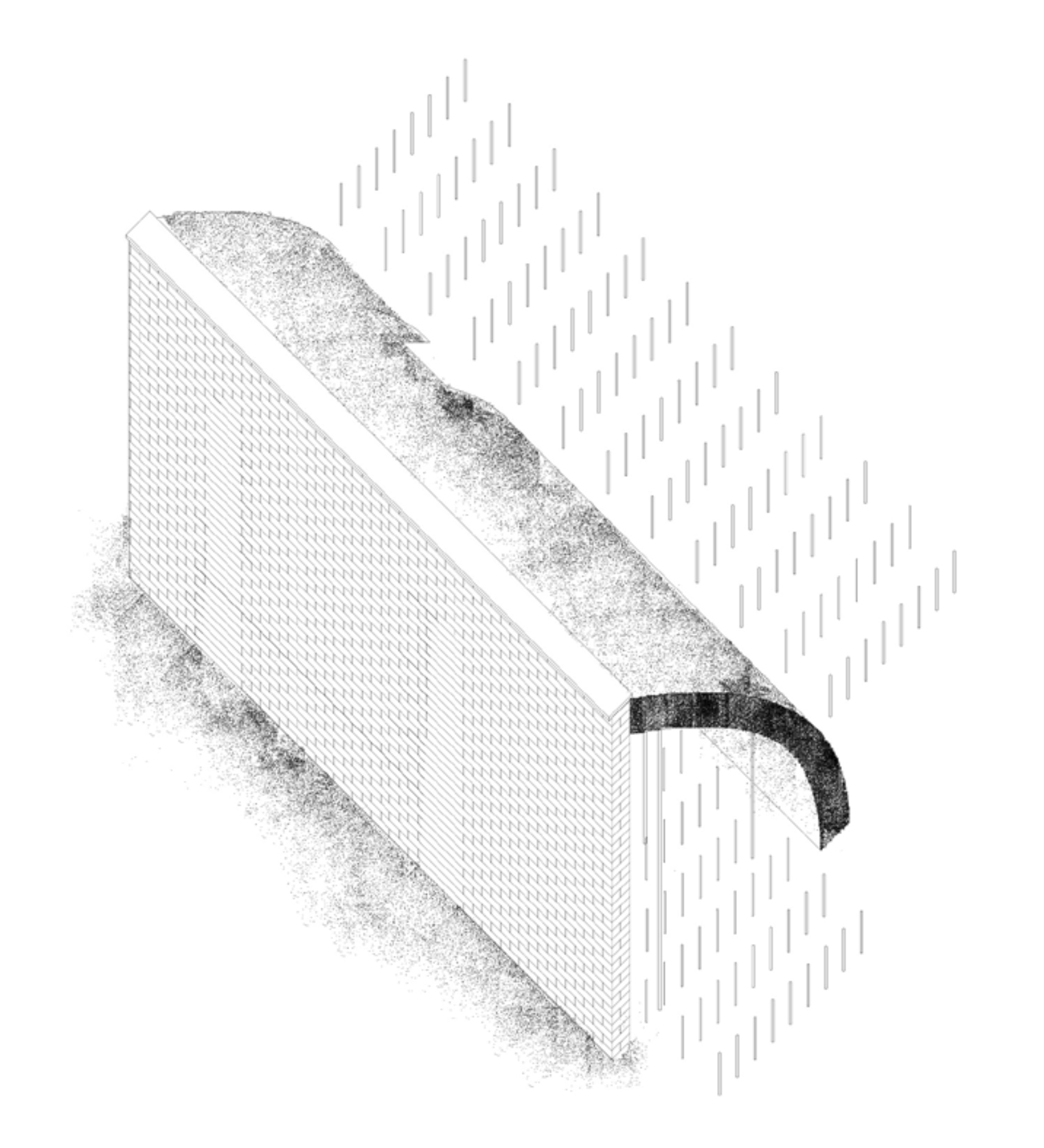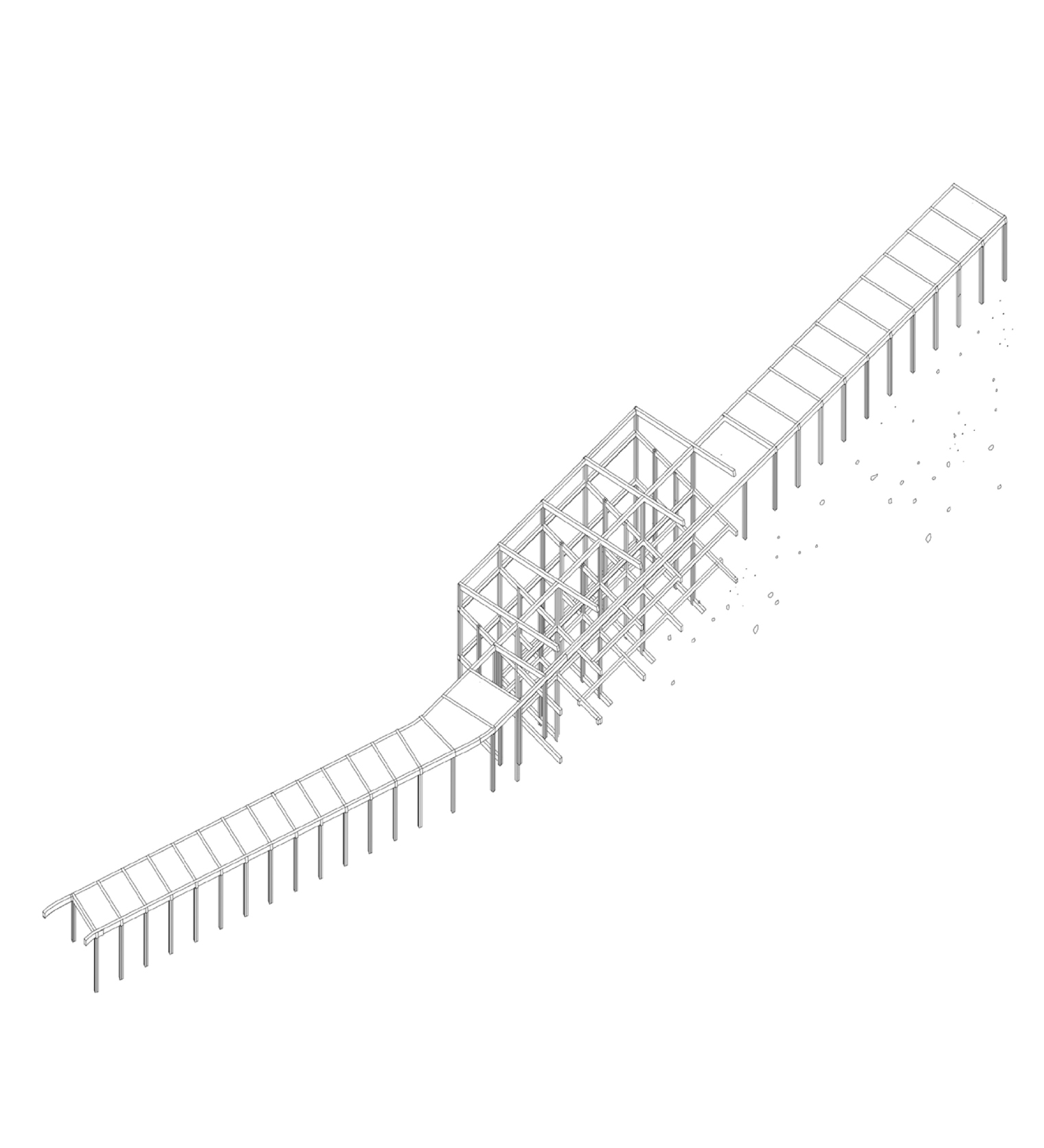Borrowed Land
Idil Ece Kucuk



The shifting character of the coastline in Britain brings our attention to the measurement of a line in relation to the production landscape. The project responds to the Roll-Back Scheme, a Shoreline Management Policy which defines the line between Britain and the North Sea, based on the geometry of administrative boundaries instead of geomorphic processes.
As both a planning strategy and spatial proposal for coastal farming in the UK, the project pilots a model for a redistribution of risk through collective maintenance and co-operative ownership.




The proposal sets out a series of successive landscapes, which differ in height, species, transparency, cross sectional quality and density to produce a set of edges for the horizon line, and create borders to diversify. These soft and hard infrastructural screens, informed by a series of comparative environmental conditions, exercise public rights along the foreshore. Gardens, new tree plantations and access infrastructure; sub-divisions within the thickness of agricultural boundaries which are occupied and maintained collectively.
The breaking of the monocultural field with communal infrastructure provides means to develop reciprocal forms of care and provision; building using state resources whilst empowering community agency.



Ultimately, the project uses the offset gap defined by the Roll-Back scheme as an easement to define the public, revisiting the landscape as one which is driven by use, not ownership; promoting a new language around public space.